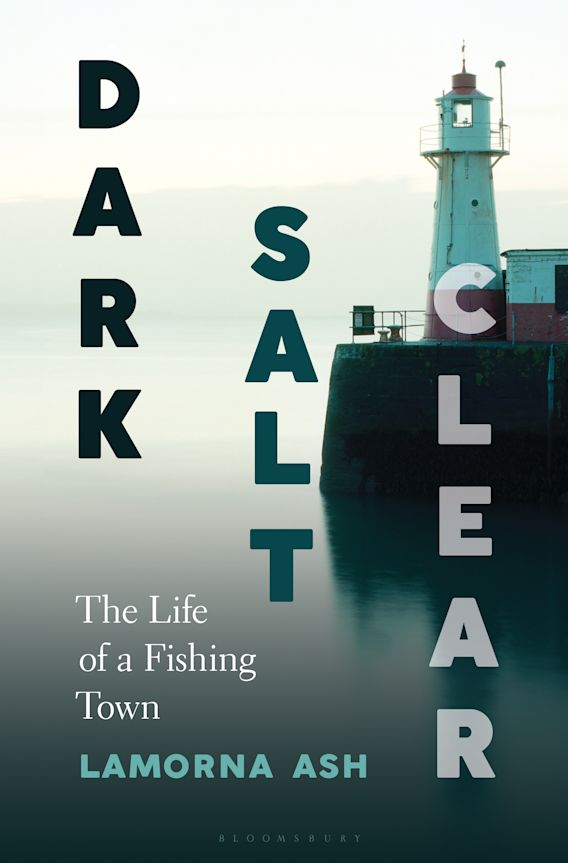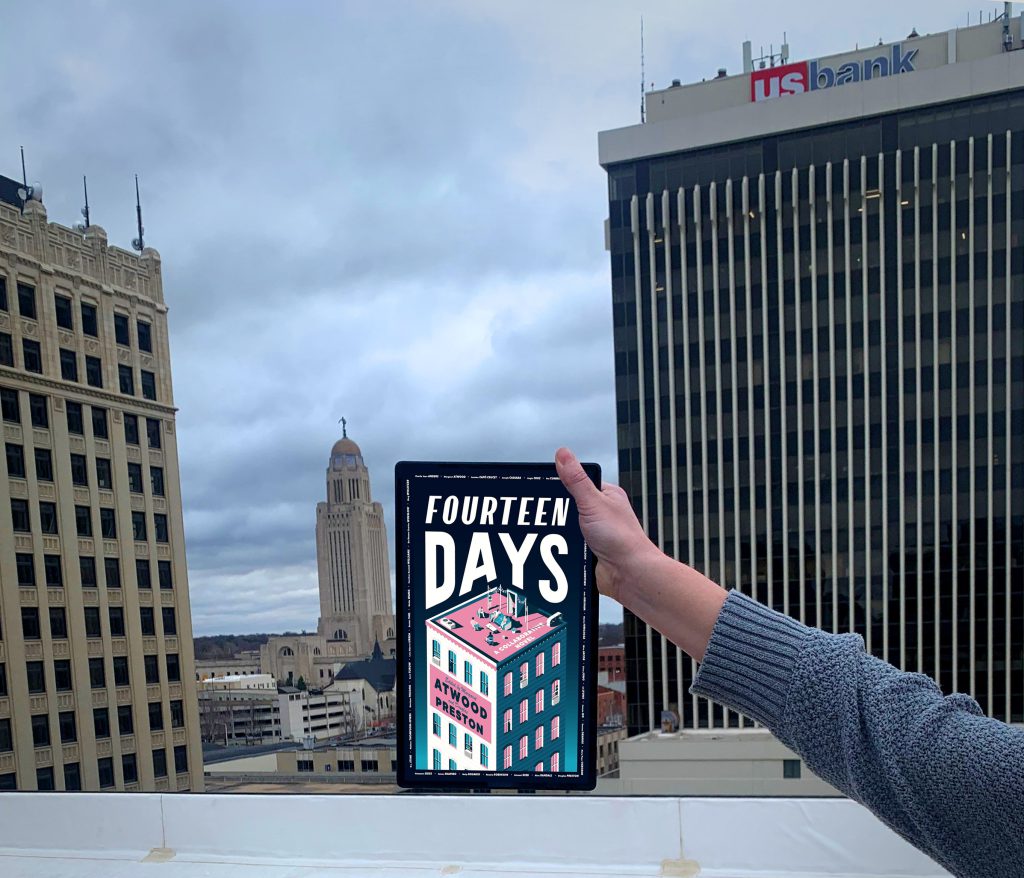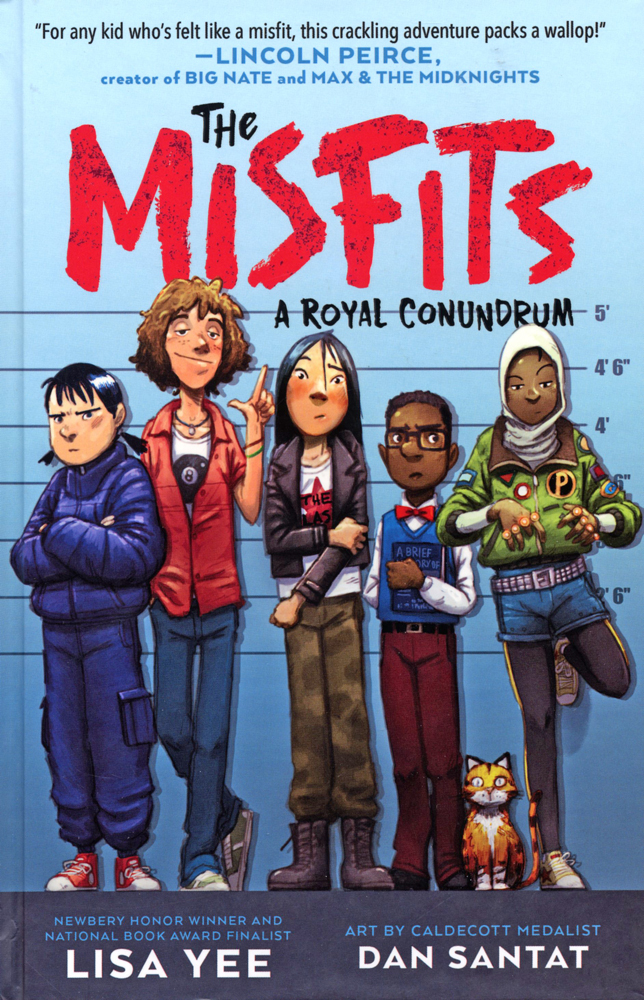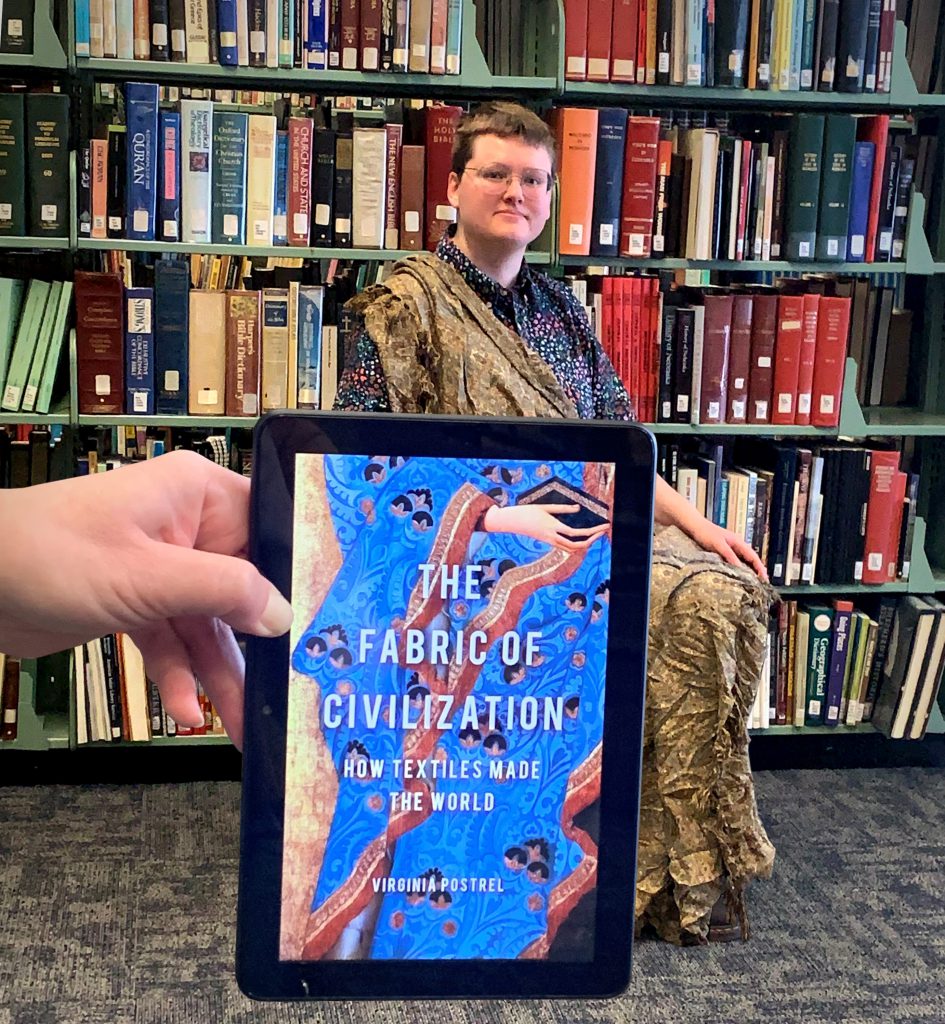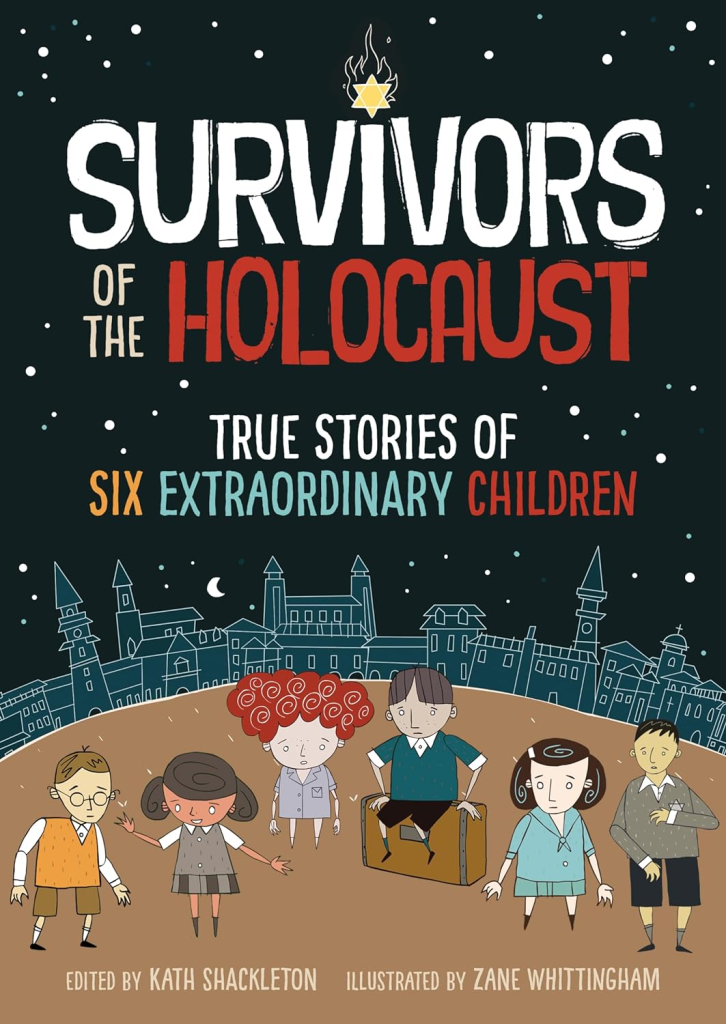Search the Blog
Categories
- Books & Reading
- Broadband Buzz
- Census
- Education & Training
- Friday Reads
- General
- Grants
- Information Resources
- Library Management
- Nebraska Center for the Book
- Nebraska Libraries on the Web
- Nebraska Memories
- Now hiring @ your library
- Preservation
- Pretty Sweet Tech
- Programming
- Public Library Boards of Trustees
- Public Relations
- Talking Book & Braille Service (TBBS)
- Technology
- Uncategorized
- What's Up Doc / Govdocs
- Youth Services
Archives
Subscribe
Tag Archives: Reading
Friday Reads: Will Trent Novels
I don’t know about you, but I am a sucker for a good book series. I blame my favorite childhood series, because once I find a character I like I just want their story to continue. Lately I’ve been deep into mystery and detective novels, including Karin Slaughter’s Will Trent series, Triptych, Fractured, Undone, and Broken. I’m currently on the fourth book in this twelve book series, and have enjoyed the world and characters that Karin Slaughter has created with character crossovers from her other book series including The Grant County Series.
Set mainly in Atlanta, Karin Slaughter’s Will Trent series begins with Triptych, where you meet Georgia Bureau of Investigation (GBI) Special Agent Will Trent and a slew of other characters that will continue throughout the series. Including his hard as nails GBI boss, Amanda Wagner, various childhood acquaintances, and other law enforcement officers. Orphaned as an infant, Will Trent spent his entire childhood as a ward of the state, growing up in group homes and foster care. And for his entire adult life, Trent has been concealing that he is barely able literate. Due to his unconventional childhood, he’s been living with undiagnosed dyslexia, finding creative ways to work around this problem, and keep it a secret. In spite of all this, or perhaps because of it, he’s an observant, thoughtful, and dedicated detective, solving crimes and seeing what others do not.
Now a series on the Hulu streaming service, Will Trent and his dog Betty are out there for everyone, even those non-readers, and it is a great TV show.
Slaughter, Karin. Triptych. Delacorte Press. 2006
Posted in Books & Reading, General
Tagged books, Crime, Fiction, Friday Reads, Karin Slaughter, mystery, Novel, Reading, series, Will Trent Series
Leave a comment
#BookFaceFriday “Red Stilts” by Ted Kooser
Relax and read a verse this #BookFaceFriday.

April is National Poetry Month, and we wanted to celebrate by highlighting Nebraskan poet Ted Kooser. Pulitzer Prize winner, 04-06 U.S. Poet Laureate, and winner of many awards including four Nebraska Book Awards and 2011’s One Book One Nebraska; Kooser’s poetry has touched the hearts of many. Each poem in this week’s #BookFace, “Red Stilts” (Copper Canyon Press, 2022), strives to reveal the complex beauties of the ordinary, of the world that’s right under our noses. It’s available for checkout as an ebook from Nebraska Overdrive Libraries, along with several other Ted Kooser titles.
If you’re looking for ways to celebrate National Poetry Month, take a look at the poetry genre from the drop-down menu on our Book Club Kit page. There are also a handful of Kooser’s titles available for request as well.
“Red Stilts” demonstrates that poets, like fine wines, continue to improve with age… Those familiar with Kooser’s work will recognize his skill at connecting the ordinary events of daily life to the sublime.”
—Lincoln Journal Star
Book Club Kits Rules for Use
- These kits can be checked out by the librarians of Nebraska libraries and media centers.
- Circulation times are flexible and will be based upon availability. There is no standard check-out time for book club kits.
- Please search the collection to select items you wish to borrow and use the REQUEST THIS KIT icon to borrow items.
- Contact the Information Desk at the Library Commission if you have any questions: by phone: 800/307-2665, or by email: Information Services Team
Find this title and many more through Nebraska OverDrive! Libraries participating in the Nebraska OverDrive Libraries Group currently have access to a shared and growing collection of digital downloadable audiobooks and eBooks. 194 libraries across the state share the Nebraska OverDrive collection of 26,174 audiobooks, 36,611 ebooks, and 5,210 magazines. As an added bonus it includes 130 podcasts that are always available with simultaneous use (SU), as well as SU ebooks and audiobook titles that publishers have made available for a limited time. If you’re a part of it, let your users know about this great title, and if you’re not a member yet, find more information about participating in Nebraska Overdrive Libraries!
Love this #BookFace & reading? Check out our past #BookFaceFriday photos on the Nebraska Library Commission’s Facebook page!
Book Club Spotlight- The Man Who Loved Books Too Much
Obviously this week, National Library Week, is the best week of the year! Celebrations include Right to Read Day, National Library Workers Day, National Library Outreach Day, and Take Action for Libraries Day. While we all know the importance of the library ecosystem, former San Francisco Library Laureate, Allison Hoover Bartlett, shares the story of what happens when greed and personal gain take over and infiltrate the book market. In her book, The Man Who Loved Books Too Much: The True Story of a Thief, a Detective, and a World of Literary Obsession, Bartlett follows the trail of notorious book thief John Charles Gilkey and peeks into the psyche of those who collect rare books, and what happens when that collecting becomes a compulsion.
Allison Bartlett entered into the world of book thieves by way of coincidence. A friend had come into possession of a stolen rare book after his brother’s passing, and Allison was drawn to its mysterious pages. As she felt this pull towards the illicit book, she began researching the history of book thievery, asking: “What makes someone cross the line from admirer to thief?”. It’s not long until two names come to her attention: Ken Sanders, a rare book dealer whose obsession with catching book thieves, leads Allison to the main focus of her story, John Charles Gilkey. For John, his (stolen) book collection is not about the contents of the books themselves, but merely the status it affords him. Growing up, he dreamed of being like the upper-crust gentlemen who honed grand libraries and garnered admiration. John takes to fraud and theft to achieve this dream, growing bolder and more self-assured as his collection grows. And his curation list? The Modern Library’s List of 100 Best Novels. Follow along with the strained and strange relationship between booksellers and the titular book thief. Where each believes the other is the true criminal.
“It wasn’t merely a love of books that compelled him, but also what owning them would say about him. It’s a normal ambition—that our choice of music or cars or shoes reflects well on us—taken to the extreme.”
Allison Hoover Bartlett
Part True Crime, part history of book collecting and fervor, The Man Who Loved Books Too Much is about trying to understand the psyche of these collectors and those who experience book-collecting mania, or Bibliomania. According to Bartlett, in rare book collections, the physical properties of the books, the memories associated with the title, or the historical importance of that edition are often more valuable than the actual contents within them. Book Club Groups will love the low-stakes True Crime aspect and exploring what in the mind can drive us to place such value on having personal library collections.
As Bartlett finds herself more entrenched in the rare book collection space, she notes that it largely consists of rich white men. While their hobbies are viewed as intellectual, there has been a trend of treating young female celebrities and models who carry around the latest literary fiction novel (“Literary It Girls”) as lesser and shallow attempts at intellectualism. But what is their real difference? Rare book collecting and John Gilkey’s obsession with the status symbol he associated with the books he stole can bring to light a much-needed discussion about the value we place on our favorite pastime, classism and maybe even a hidden misogynistic agenda.
Further Resources:
- More Stories of Book Theft:
- “Booktok and the Hotgirlification of Reading”:
If you’re interested in requesting The Man Who Loved Books Too Much for your book club, you can find the Request Form here. There are 5 copies available. (A librarian must request items)
Bartlett, Allison Hoover. The Man Who Loved Books Too Much. Riverhead Books. 2009
#BookFaceFriday “The Second Mrs. Astor” by Shana Abé
Come sail away with #BookFaceFriday!
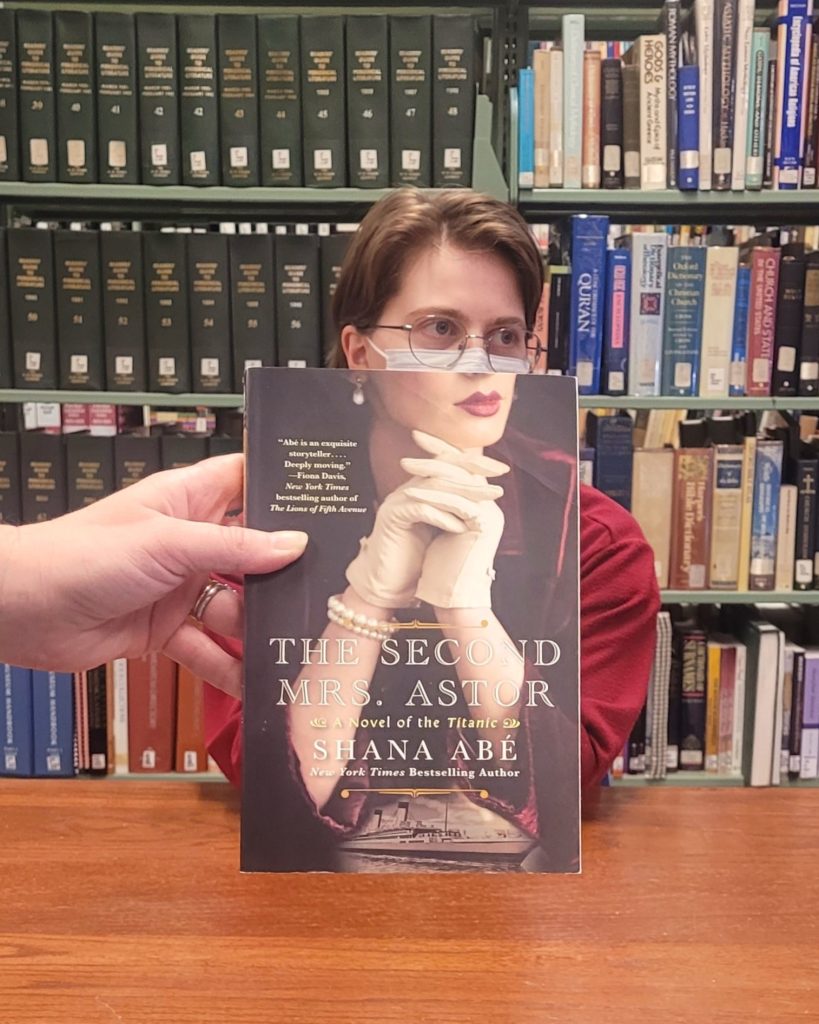
Grab your life jackets, this week’s #BookFace is about to hit rough waters!
“The Second Mrs. Astor: a Novel of the Titanic” by Shana Abé (Kensington Books, 2021) is the story of the scandalous marriage of one of America’s wealthiest businessmen and his decades-younger bride. After a lovely honeymoon abroad, they head for home on a brand-new ship… and you probably can guess how that chapter ends! This historical fiction title is available as an ebook and audiobook in Nebraska OverDrive Libraries, and is one of many titles that are always available; their publishers allow for for simultaneous use (SU), so you can skip the wait and find a great read now!“Abé is an exquisite storyteller. Rich in detail and deeply moving.”
—Fiona Davis, New York Times bestselling author of The Magnolia Palace
This week’s model is our brand-new Talking Book & Braille Service (TBBS) Reader Services Advisor, Jo Mezger. Jo comes to us by way of Lincoln City Libraries, and their favorite genre to read is magical realism (but they could while away hours with the hip-hop books at LCL’s Polley Music Library as well!) Welcome aboard Jo!
Find this title and many more through Nebraska OverDrive! Libraries participating in the Nebraska OverDrive Libraries Group currently have access to a shared and growing collection of digital downloadable audiobooks and eBooks. 194 libraries across the state share the Nebraska OverDrive collection of 26,174 audiobooks, 36,611 ebooks, and 5,210 magazines. As an added bonus it includes 130 podcasts that are always available with simultaneous use (SU), as well as SU ebooks and audiobook titles that publishers have made available for a limited time. If you’re a part of it, let your users know about this great title, and if you’re not a member yet, find more information about participating in Nebraska Overdrive Libraries!
Love this #BookFace & reading? Check out our past #BookFaceFriday photos on the Nebraska Library Commission’s Facebook page!
#BookFaceFriday “It’s a Question of Space” by Clayton C. Anderson
Ground Control to Major #BookFace!
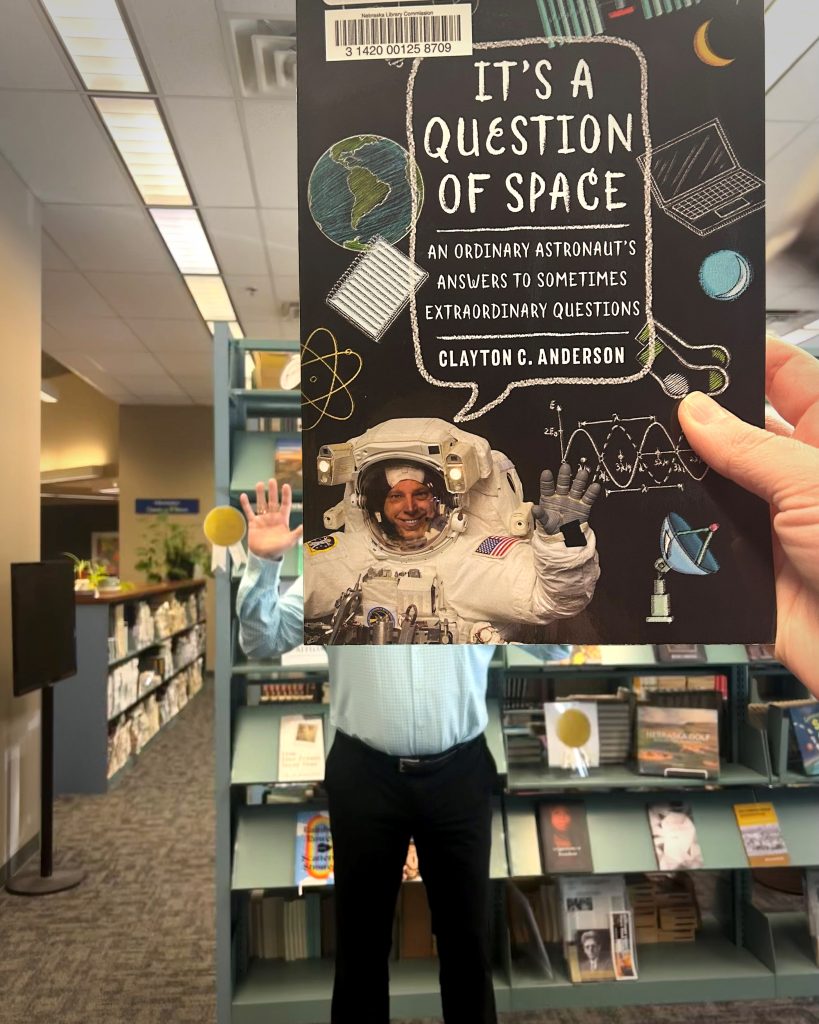
This #BookFace Friday is out of this world! We love featuring Nebraska authors and this week it’s a real life astronaut to boot. Astronaut Clayton Anderson is the author of five books including “It’s a Question of Space: An Ordinary Astronaut’s Answers to Sometimes Extraordinary Questions” (University of Nebraska Press, 2018.) This title as well as his memoir “The Ordinary Spaceman” are available as eBooks in Nebraska OverDrive Libraries. This week’s model is Clayton Anderson himself! He was in the office this week dropping off posters for Nebraska Libraries! We’ll be getting these posters to your Nebraska Regional Library System Directors at the spring Systems Meeting so librarians can let their local Systems know if they are interested in a free poster.
“Clay Anderson dispels myths and simplifies complex subjects for the reader and with examples from his personal experiences provides insight into the daily life of an astronaut. As a teacher trying to fuel the curiosity of and relate relevant topics to students, I would keep a copy of this book on my desk.”
—Dottie Metcalf-Lindenburger, earth scientist, educator, and retired astronaut
Find this title and many more through Nebraska OverDrive! Libraries participating in the Nebraska OverDrive Libraries Group currently have access to a shared and growing collection of digital downloadable audiobooks and eBooks. 194 libraries across the state share the Nebraska OverDrive collection of 26,174 audiobooks, 36,611 ebooks, and 5,210 magazines. As an added bonus it includes 130 podcasts that are always available with simultaneous use (SU), as well as SU ebooks and audiobook titles that publishers have made available for a limited time. If you’re a part of it, let your users know about this great title, and if you’re not a member yet, find more information about participating in Nebraska Overdrive Libraries!
Love this #BookFace & reading? Check out our past #BookFaceFriday photos on the Nebraska Library Commission’s Facebook page!
Friday Reads: Dark, Salt, Clear by Lamorna Ash
My favorite book discoveries are often found nestled amongst travel guides. While guidebooks often shrink small towns into succinct paragraphs, and weigh their significance based on subjective criteria suited for outsiders, I love a book that digs deeper into a place. Dark, Salt, Clear: The Life of a Fishing Town is one of these finds.
Lamorna Ash is a twenty-something Londoner, who ventures to the Cornish coastline to learn about fishing. Although she is an outsider, she has roots in Cornwall. Her mother was raised there and named her daughter for a Cornish village. Lamorna settles in Newlyn, a town centered on the fishing industry, steeped in tradition, but also rapidly changing. The locals quickly welcome her into their lives and workplaces, allowing her access to the various enterprises, including participating in the catch, processing fish, and observing the wholesale auction in an ever changing global market.
Dark, Salt, Clear is not just a story about fishing. It’s about the people, the place, and the complex beauty of it all. Ash peppers her story with poetry and prose from others who experienced the sea and its coastlines. The book’s title comes from the poem “At the Fishhouses” (1947) by Elizabeth Bishop:
“It is like what we imagine knowledge to be:
dark, salt, clear, moving, utterly free,
drawn from the cold hard mouth
of the world, derived from the rocky breasts
forever, flowing and drawn, and since
our knowledge is historical, flowing, and flown.”
Ash is also adept at interweaving her own poetic observations about life and the natural world, and often reflects on the things she learns from the people she meets including captains, deckhands, birdwatchers, fishmongers, processors, barkeeps, and geologists.
“A geologist’s task is to see beyond the ways in which time tries to smooth out difference, examining layers in order to isolate each sift to our world, to feel every fault line. We discuss how hard this is to do this with people, to imagine our lives not as one continuous line, but comprised of hundreds of versions, stacked up behind us, and hundreds more ahead of us too, like those pairs of facing mirrors that make your reflection curl up infinitely on either side of you.”
The book not only explores what it means to work in the fishing industry, but also what it means to live in a place that is so connected to the sea. As a person who grew up in a small coastal town in the Pacific Northwest, I was intrigued to learn about another coastal town across the globe. Books, like travel, can broaden our horizons, but also connect us. People in Cornwall look for the illusive “Green Flash” just like the residents of my hometown. The fishing industry everywhere is effected by globalization and climate change. Small seaside towns struggle with similar issues like tensions between tourism and industry. Fishing families across the globe are impacted by metal health issues, tragedy, and grief.
If you are curious about the natural world and the human experience in a small town across the Atlantic, check out Dark, Salt, Clear. While I picked up a physical copy of this book from my local library, you can also read it as an ebook through the Nebraska OverDrive Libraries.
Ash, Lamorna. Dark, Salt, Clear: the Life of a Fishing Town. Bloomsbury, 2020.
Book Club Spotlight – The Daughter of Time
With the British Royal Family gossip mill recently abuzz, and as the sun sets on Women’s History Month, now is the perfect opportunity to visit Josephine Tey’s 1951 novel The Daughter of Time, and take a step back to the 15th century to investigate the murderous reputation of Richard III. Holding the top spot in the British Crime Writers’ Association’s list of Top 100 Crime Novels of All Time, The Daughter of Time is quite the influential novel, leading in part to the discovery of Richard III’s burial site in 2012. Like Nebraska’s own Mignon G. Eberhart, Tey wrote during what is called the “Golden Age of Crime Fiction”, and her novels continue to surprise and delight readers.
Hospitalized from his latest case, Inspector Alan Grant is at a loss for entertainment. Having counted the ceiling tiles and studied the comings and goings of his nurses, he is growing restless. It’s not until a friend suggests he attempt to solve a cold case from his hospital bed does inspiration strike. Examining a portrait of the late King Richard III, Grant (a fan of physiognomy) doesn’t see the ruthless uncle who would kill his two young nephews. He sees a gentle man, lost to time. With the help of a young American researcher, Grant races across histories written by second hands with ulterior motives. And as the pair work to challenge myths and legends to clear Richard’s name, they can’t help but wonder, what could be gained by besmirching an usurped King?
“The truth of anything at all doesn’t lie in someone’s account of it. It lies in all the small facts of the time. An advertisement in a paper, the sale of a house, the price of a ring.”
Josephine Tey
Chock full of wit and political intrigue, The Daughter of Time is a history lesson like no other. Our copies at the Commission include a 2013 introduction by the late author Robert Barnard whose overview of Josephine Tey (real name Elizabeth Mackintosh) includes her writing style, spot in history, and acknowledgments of prejudices characteristic of her time which are unfortunately present in the text. Book Club groups will enjoy exploring the very real mystery of Richard III and the unknown fate of the two Princes in the Tower against the safe and removed backdrop of Grant’s hospital bed. And the delightful repartee between characters cannot be understated, from puns to inquiring over the ownership of who gets to die in the Thames- Tey is truly a master of the genre.
If you’re interested in requesting The Daughter of Time for your book club, you can find the Request Form here. There are 7 copies available. (A librarian must request items)
Tey, Josephine. The Daughter of Time. Simon and Schuster. 1951
Posted in Books & Reading
Tagged book club spotlight, books, Reading, Women's History Month
Leave a comment
#BookFaceFriday – “Reader’s Digest: Special Pets Issue”
This #Bookface is ready to sit and stay.

It’s hard to teach an old dog new tricks, and it’s easy to forget you have access to magazines on Nebraska OverDrive Libraries! Take a look at “Reader’s Digest” just one of 3,596 English titles now available as an eBook from Nebraska OverDrive Libraries! Three years of issues are available of many titles, as well as some single titles (generally special edition issues of certain magazines or items like adult coloring books). Magazines do not count against a reader’s checkout limit of 6, and magazine issues may be checked out for 7, 14, or 21 days, depending on your library’s policy. Along with all the English-language titles, you have access to Spanish-language titles, and many other languages including French, German, Chinese, Japanese, Russian, Afrikaans, and Italian.
“In this era of information overload, Reader’s Digest offers something unique: the very best advice, information and inspiration from multiple sources, condensed into an easy-to-read digest. In each issue you’ll get trusted, time-saving insights about Health, Personal Finance, Work, Family, and National issues, PLUS exclusive book excerpts, news-making interviews, and humor.”
Reader’s Digest Blurb
Libraries participating in the Nebraska OverDrive Libraries Group currently have access to a shared and growing collection of digital downloadable audiobooks and eBooks. 194 libraries across the state share the Nebraska OverDrive collection of 26,174 audiobooks, 36,611 ebooks, and 5,210 magazines. As an added bonus it includes 130 podcasts that are always available with simultaneous use (SU), as well as SU ebooks and audiobook titles that publishers have made available for a limited time. If you’re a part of it, let your users know about this great title, and if you’re not a member yet, find more information about participating in Nebraska Overdrive Libraries!
Love this #BookFace & reading? We suggest checking out all the titles available in our Book Club collection, permanent collection, and Nebraska OverDrive Libraries. Check out our past #BookFaceFriday photos on the Nebraska Library Commission’s Facebook page!
Posted in Books & Reading, General
Tagged bookface, bookfacefriday, books, Ebook, Magazine, Nebraska OverDrive Libraries, Reader's Digest, Reading
Leave a comment
Book Club Spotlight – A Beautiful Poison
Happy Women’s History Month! This month we’ll be featuring incredible women authors, and today’s Book Club Spotlight is written by none other than the brilliant Lydia Kang, MD. Author of numerous Adult, Young Adult, Non-Fiction, and Star Wars novels, Kang, an internal medicine physician in Omaha, combines her passion for medicine and literature in her award-winning historical/medical mysteries. Her debut novel, A Beautiful Poison, takes place in New York City, where she studied medicine at Columbia University and the New York University School of Medicine.
In the upper echelon of 1918 New York City, everyone has secrets. In a society stuck between the Gilded Age and the Jazz Age, Americans are gripped by war, and the looming influenza outbreak, while Allene is chasing after her past. A past where she, Jasper, and Birdie were together. And finally, when they are all together again, Florence Waxworth gets herself poisoned in the middle of Allene’s engagement party! As the murdered bodies continue to fall around them, their hot-headed group is the only one who can solve the mystery. Torn apart by their whims and desires, the trio must face the influenza, a killer, and each other, in order to make it out alive.
“It was a fresh new day, served with a glorious sunrise and of course Florence’s untimely death to solve.”
Lydia Kang
For mature teens or adult book club groups looking for fast-paced mysteries to keep you on your toes, and mixed with the incredible setting, A Beautiful Poison is a joy to experience and try to solve alongside the characters. As a former resident and student, Kang’s heart shows when describing New York City and specifically Bellevue Hospital, which features heavily in the novel and includes the real pioneers of forensic medicine as integral figures in solving the medical mystery. The characters of Allene, Jasper, and Birdie are complicated and compelling, as they try to mend a friendship and deep love that may be too far gone.
Related Readings:
The Poisoner’s Handbook by Deborah Blum
- The Poisoner’s Handbook PBS Documentary (Hoopla Digital)
If you’re interested in requesting A Beautiful Poison for your book club, you can find the Request Form here. There are 3 copies available. (A librarian must request items)
Kang, Lydia. A Beautiful Poison. Lake Union Publishing. 2017
Posted in Books & Reading
Tagged AAPI, book club spotlight, books, Nebraska Author, Reading
Leave a comment
#BookFaceFriday “No Summit Out of Sight” by Jordan Romero
Off we go, into the wild blue #BookFaceFriday!
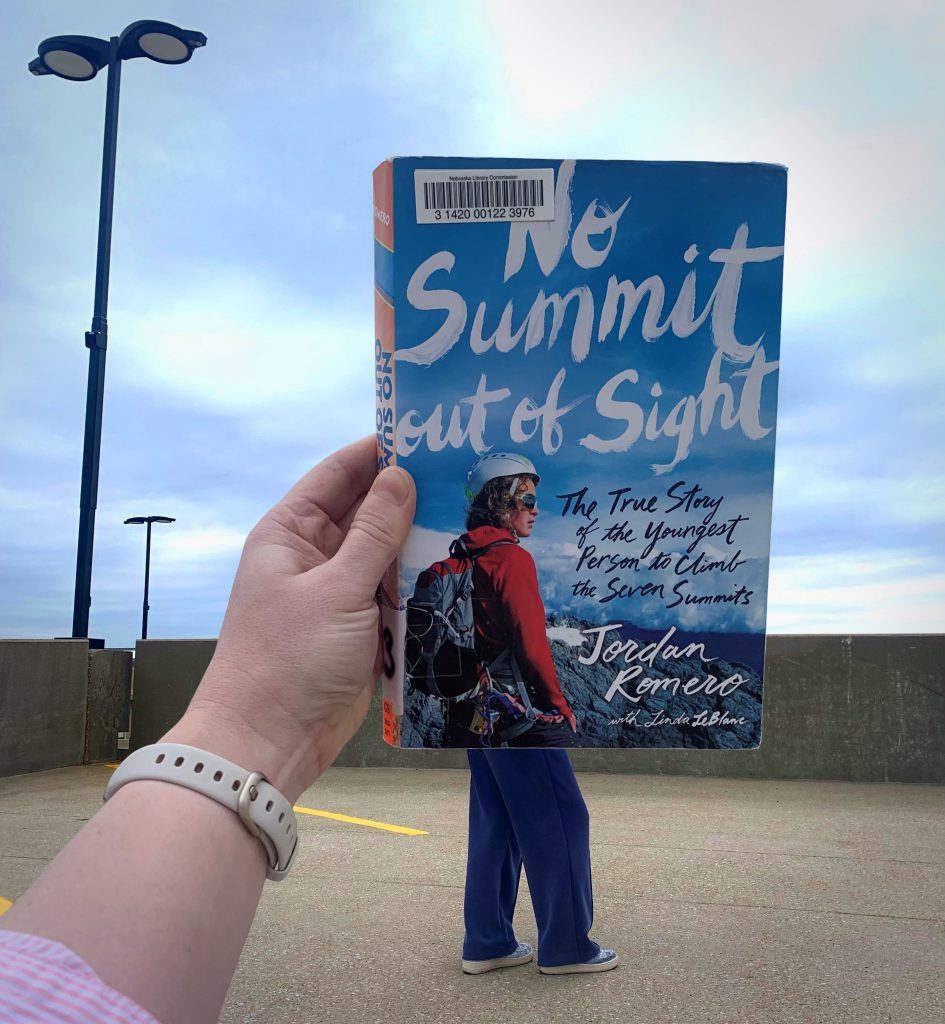
Get ready to climb every mountain with this week’s #BookfaceFriday,”No Summit Out of Sight: the True Story of the Youngest Person to Climb the Seven Summits” by Jordan Romero (Simon & Schuster Books for Young Readers, 2014)!
This title is available as a book club kit, and fits right into the theme of the the 2024 Collaborative Summer Library Program (CSLP): “Adventure Begins at Your Library.” You can find even more tales of adventure and survival by choosing that genre in the drop-down menu on our Book Club Kit page – just right for those young readers looking for a vicarious thrill!Our Youth Services Librarian, Sally Snyder, has been traveling all across Nebraska in recent weeks presenting Summer Reading Program (SRP) workshops for librarians. Didn’t make it to a workshop? Check out Sally’s NCompass Live: Summer Reading Program 2024: Adventure Begins at Your Library and learn about nature- and adventure-themed books perfect for your library’s SRP.
“The emotional pitch of the story remains high as Romero contends with extreme weather, frustration, exhaustion, and homesickness to reach, with almost palpable exhilaration, each peak.”
—Publishers Weekly
Book Club Kits Rules for Use
- These kits can be checked out by the librarians of Nebraska libraries and media centers.
- Circulation times are flexible and will be based upon availability. There is no standard check-out time for book club kits.
- Please search the collection to select items you wish to borrow and use the REQUEST THIS KIT icon to borrow items.
- Contact the Information Desk at the Library Commission if you have any questions: by phone: 800/307-2665, or by email: Information Services Team
Find this title and many more through Nebraska OverDrive! Libraries participating in the Nebraska OverDrive Libraries Group currently have access to a shared and growing collection of digital downloadable audiobooks and eBooks. 194 libraries across the state share the Nebraska OverDrive collection of 26,174 audiobooks, 36,611 ebooks, and 5,210 magazines. As an added bonus it includes 130 podcasts that are always available with simultaneous use (SU), as well as SU ebooks and audiobook titles that publishers have made available for a limited time. If you’re a part of it, let your users know about this great title, and if you’re not a member yet, find more information about participating in Nebraska Overdrive Libraries!
Love this #BookFace & reading? Check out our past #BookFaceFriday photos on the Nebraska Library Commission’s Facebook page!
#BookFaceFriday “Among the Bros” by Max Marshall
Dude, it’s #BookFaceFriday!
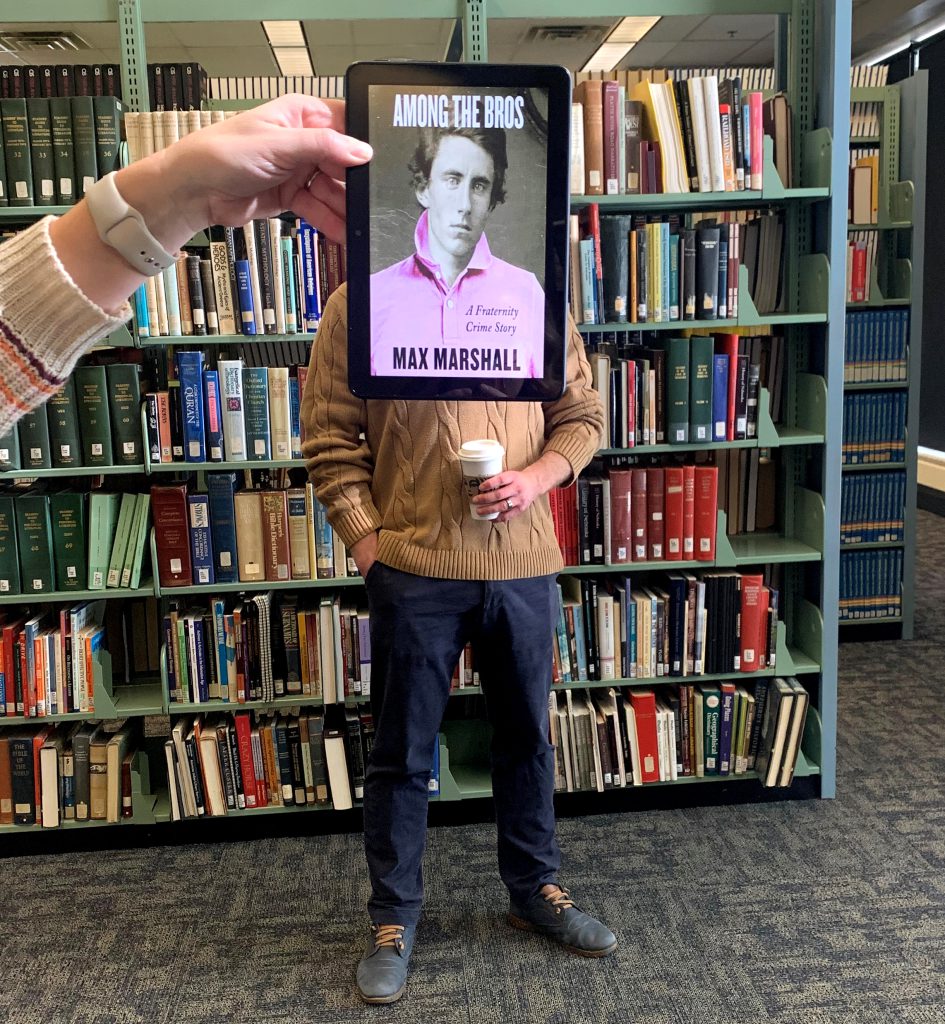
No cap, bro – this really happened! Fans of true crime and nonfiction storytelling are in for a wild ride
in this week’s #BookFace “Among the Bros: A Fraternity Crime Story” by Max Marshall (HarperAudio, 2023.) This title is available as an audiobook in Nebraska OverDrive Libraries! This week’s title fits into several different subject genres in Nebraska OverDrive Libraries including True Crime, Sociology, Autobiography & Biography, and Nonfiction. Depending on what you have a penchant for, you can search the entire digital collection by subject, whether it’s as broad as Nonfiction, or as niche as True Crime.“Through chilling, candid conversations with his sources, Marshall convincingly illustrates how these young men allowed greed to wreck their lives. The result is a fast-paced and frightening campus crime saga.”
—Publishers Weekly
Find this title and many more through Nebraska OverDrive! Libraries participating in the Nebraska OverDrive Libraries Group currently have access to a shared and growing collection of digital downloadable audiobooks and eBooks. 194 libraries across the state share the Nebraska OverDrive collection of 26,174 audiobooks, 36,611 ebooks, and 5,210 magazines. As an added bonus it includes 130 podcasts that are always available with simultaneous use (SU), as well as SU ebooks and audiobook titles that publishers have made available for a limited time. If you’re a part of it, let your users know about this great title, and if you’re not a member yet, find more information about participating in Nebraska Overdrive Libraries!
Love this #BookFace & reading? Check out our past #BookFaceFriday photos on the Nebraska Library Commission’s Facebook page!
Posted in Books & Reading, General
Tagged Among the Bros, Audiobook, bookfacefriday, Max Marshall, Nebraska OverDrive Libraries, OverDrive, Reading, True Crime
Leave a comment
Friday Reads: The Misfits: A Royal Conundrum by Lisa Yee
Olive Zang (almost 12) doesn’t really fit in – at school, with friends (what friends?) or even with her mom and dad. They are always gone on a trip for work, and seem to not really notice her. This time, before they leave again, they put her in a boarding school located on an island in San Francisco Bay.
Once she arrives at RASCH (Reforming Arts School) she undergoes an unusual set of tasks as an aptitude test for placement in the school. Once placed with Pod 101 she is surprised at how quickly the group of five bonds. They are hastily put into training to prepare them to be a contributing group for a secret crime fighting organization. Soon the very existence of the school (the first one where Olive feels connected and appreciated) is on the line, can The Misfits (her group) help capture a jewel thief? Will they help or hinder the effort?
As Kirkus says, “A fantastical blend of quirky characters and goofy adventures.” (11/1/23) Includes occasional black and white drawings by Dan Santat. This is the first book of a new series aimed at grades 3-6 or so.
Yee, Lisa. The Misfits: A Royal Conundrum. Random House, 2024.
Book Club Spotlight – Hector’s Bliss
A unique aspect of our Book Club Collection here at the Commission is our focus on Nebraska authors, settings, and stories, housing the hidden gems of Nebraska literature and history! Today’s pick for the Book Club Spotlight, in particular, focuses on a relatively unknown part of Nebraska’s Black History. While we know the story of white pioneers and homesteaders, there was also the incredible journey of formerly enslaved people who became landowners, farmers, and a community in the Sandhills. Hector’s Bliss: Black Homesteaders at Goose Lake, Nebraska, by Dennis Vossberg, is a historical fiction novel based on the incredible history of Black Homesteaders, who, under false pretenses, persevered in the harsh farmland until drought and the Dust Bowl overcame the whole region.
In the late 1800s, at the height of legalized racial segregation, just south of O’Neil, Nebraska, there was the short-lived story of Bliss, and the Black community members who called it home. During the economic downturn caused by the end of the Civil War, the newly freed people were looking for a reliable place to land. As newly married Hector and Julia Dixon were floundering in a small mining town, land promoters arrived, falsely promising flourishing farmland and untapped coal veins awaited them in the far reaches of the Nebraska Sandhills. The Dixons and 13 other families unknowingly move to the desert-like plains to start anew. Besought by harsh conditions, poverty, and rural isolation, their community works hard to create a solid foundation for the future despite the conditions. As one of the more educated residents, Hector Dixon finds himself wearing many hats in Bliss, as a farmer, the integrated school’s teacher, the justice of the peace, and eventually a milk road delivery man, all to support his growing and tenacious family. Striving to find a balance between the life his children dream of and the one he has worked so hard to build.
He took a lingering gaze over the peaceful countryside, thinking of how transient were the human inhabitants of this land, and how triumphantly enduring was the land itself
Dennis Vossberg
Hector’s Bliss is a moving historical fiction crafted with love and respect for the subjects, and Book Club Groups will find value in learning about this little-known Nebraska history. They may even be encouraged to learn more. Covered in the Nebraska Public Media story, “Looking for Bliss,” the story of the Dixons and Bliss is virtually unknown. Hector’s Bliss brings to light Black history that has been erased from cultural memory, revealing a more full and beautiful world. We won’t really ever know how the Black Homesteaders were treated by their white compatriots as those details have been lost to time. So, while prejudice and racism are addressed, Vossberg chooses to focus the limited peril on the indomitable human spirit and the life these people worked to build after slavery.
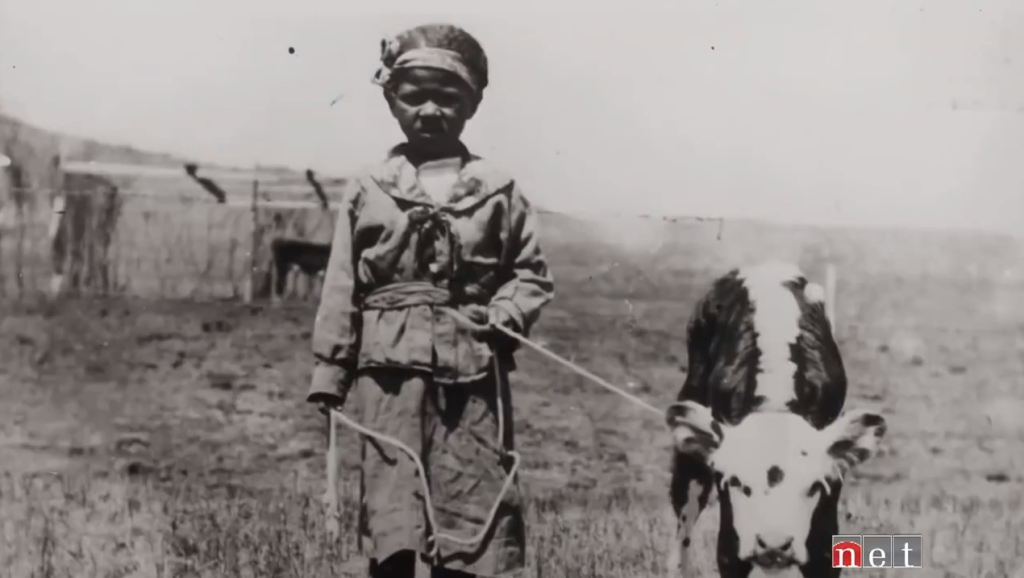
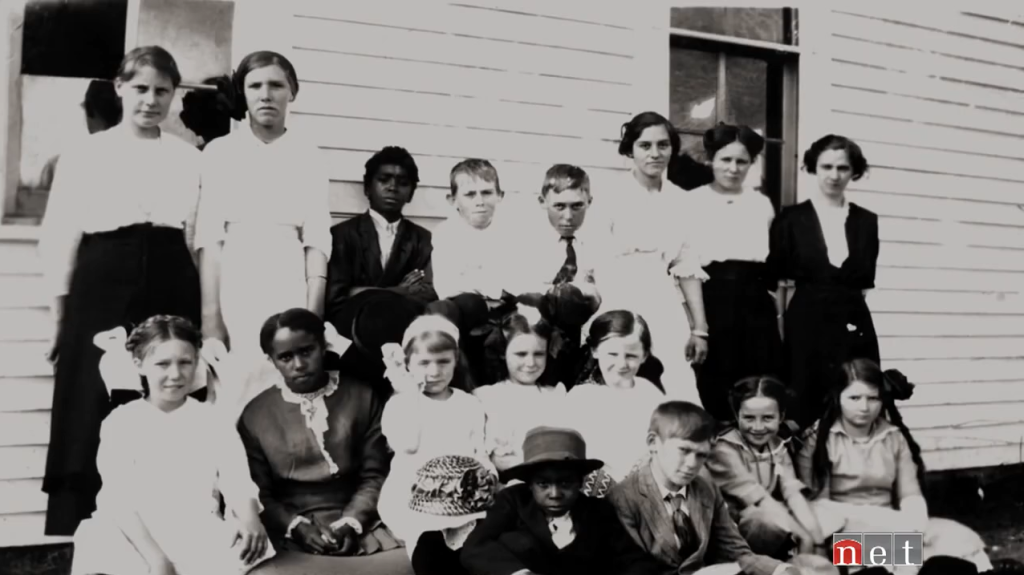
If you’re interested in requesting Hector’s Bliss for your book club, you can find the Request Form here. There are 4 copies available. (A librarian must request items)
Vossberg, Dennis. Hector’s Bliss. Morris Publishing. 2006
Posted in Books & Reading
Tagged Black History Month, book club spotlight, books, Nebraska History, Reading
Leave a comment
#BookFaceFriday “The Seven Husbands of Evelyn Hugo” by Taylor Jenkins Reid
Hold on to your husbands, it’s #BookFaceFriday!
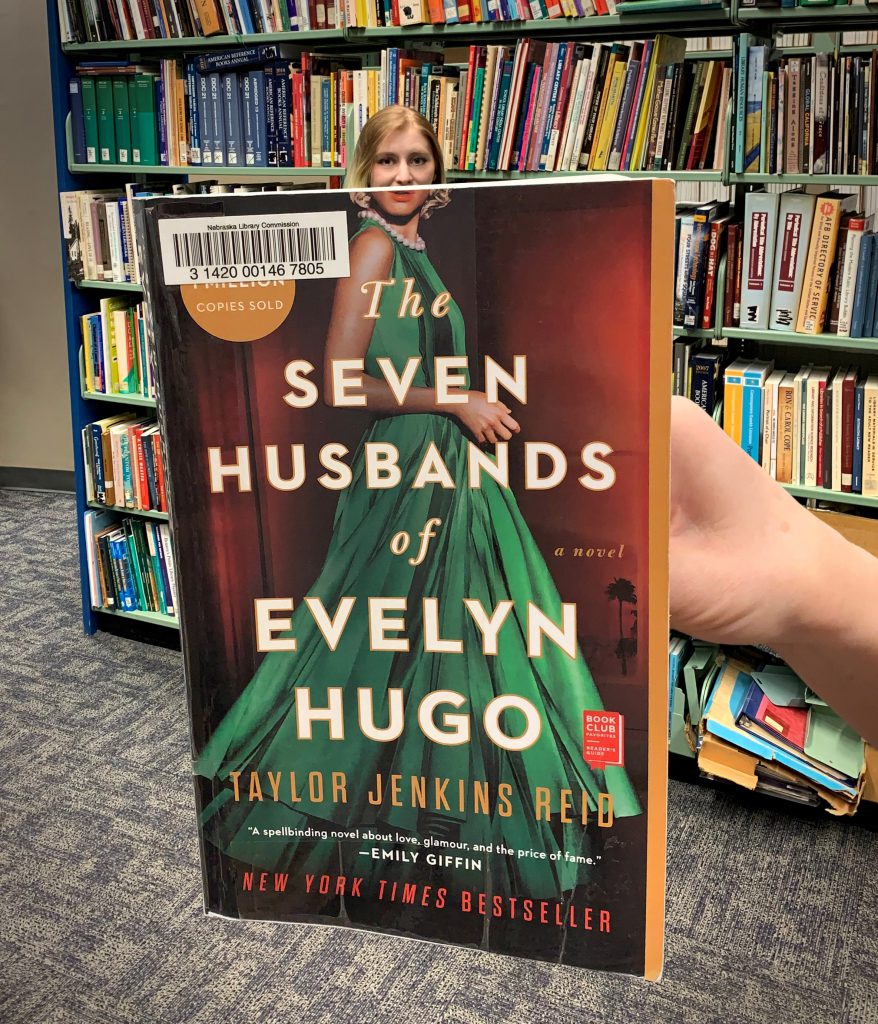
This week’s BookFace, “The Seven Husbands of Evelyn Hugo: A Novel” by Taylor Jenkins Reid (Atria Books, 2017), is a hot ticket in our Book Club Kits Collection. It rarely spends time on the shelf!
Sometimes it can be difficult for book clubs to schedule and secure some of the more popular titles. If this happens to you often, we suggest using our Multiple Month – Year-At-A-Time Request Form. This allows us to help you plan out in advance your book club reads and get you in line for the most coveted titles. This title is available as an eBook and Audiobook in Nebraska OverDrive Libraries. Taylor Jenkins Reid is a popular author; NLC has two of her books in our Book Club Kits Collection and Nebraska OverDrive Libraries has seven.“The epic adventures Evelyn creates over the course of a lifetime will leave every reader mesmerized. This wildly addictive journey of a reclusive Hollywood starlet and her tumultuous Tinseltown journey comes with unexpected twists and the most satisfying of drama.”
—PopSugar
Our model this week is a new addition to the Nebraska Library Commission! Welcome to Bailee Juroshek, our new Office Specialist for the Public Information and Communication department. She worked previously as a freelance illustrator and is originally from Ogden, Utah. When it comes to books Bailee said one of her favorite series is “The Kingkiller Chronicle” by Patrick Rothfuss, and that she “loves a detailed fantasy world that you can get lost in.” Outside of reading, her hobbies include playing DND, creating artwork, and singing karaoke. She has three cats that keep her busy at home. “Their names are Coco Bean, Lilith, and Azmo, and they’re all adorable little trouble-makers.” If you get the chance, say hello to Bailee!
Book Club Kits Rules for Use
- These kits can be checked out by the librarians of Nebraska libraries and media centers.
- Circulation times are flexible and will be based upon availability. There is no standard check-out time for book club kits.
- Please search the collection to select items you wish to borrow and use the REQUEST THIS KIT icon to borrow items.
- Contact the Information Desk at the Library Commission if you have any questions: by phone: 800/307-2665, or by email: Information Services Team
Find this title and many more through Nebraska OverDrive! Libraries participating in the Nebraska OverDrive Libraries Group currently have access to a shared and growing collection of digital downloadable audiobooks and eBooks. 194 libraries across the state share the Nebraska OverDrive collection of 26,174 audiobooks, 36,611 ebooks, and 5,210 magazines. As an added bonus it includes 130 podcasts that are always available with simultaneous use (SU), as well as SU ebooks and audiobook titles that publishers have made available for a limited time. If you’re a part of it, let your users know about this great title, and if you’re not a member yet, find more information about participating in Nebraska Overdrive Libraries!
Love this #BookFace & reading? Check out our past #BookFaceFriday photos on the Nebraska Library Commission’s Facebook page!
Book Club Spotlight – When Stars are Scattered
Happy Black History Month from Book Club Spotlight! The theme for 2024 is “African Americans and the Arts,” which honors the incredible contributions of African Americans to culture, music, art, and literature. And what better combination of art and literature is there than graphic novels? So, to wrap up our mini-series, we will follow young Somali refugees displaced by civil war. Where the Stars are Scattered, by Victoria Jamieson and Omar Mohamed, is based on the childhood of Mohamed, who grew up in Dadaab, the world’s largest refugee camp. The list of honors for this book is massive, including being a National Book Award Finalist, the School Library Journal Best Book of 2020, and a 2021-22 Golden Sower Chapter Book Nominee.
Omar and his brother Hassan have been in the Dadaab refugee camp for seven years! Without their parents, the boys live on their own, watched over by an aging foster mother, Fatuma. Having the responsibility of caring for himself and his nonverbal brother, everyday Omar must clean the floorless tent they sleep on, hide any valuables from thieves, and wait. Wait for water, wait for food, wait for his mother to find them, wait for the war to end, and wait to leave the refugee camp. When Omar gets a chance to attend school, he is far behind other children his age, and soon, the pressure of school and chores begins to make him angry and resentful. As he grows and becomes continually frustrated with his situation, he sees how everyone else is stuck just like him—especially the girls, who, like Omar, are burdened with too many responsibilities. With encouragement from his friends and community, Omar grows more confident in his abilities and in Hassan and starts dreaming about a future outside the camp. And one day, Omar’s and Hassan’s names are called for an interview with the UN for a chance to finally leave Dadaab, an exciting and terrifying possibility.
“It was nice talking like this. Pretending we were normal kids, with normal futures to look forward too”
– Victoria Jamieson & Omar Mohamed
Written for middle grades and up, all will be deeply moved by reading this graphic novel. With wars waging worldwide, it’s hard not to feel overwhelmed and powerless, and listening to stories of those going through these tough times matters. When Stars are Scattered is an excellent representation of the day-to-day life in refugee camps. Maybe your Book Club Group wants to learn more about what life is like for refugees, or your students have questions about what is happening to displaced children like them. Since moving to America, Mohamed has dedicated his life to serving his community back in Dadaab and improving the living conditions of refugees, especially young girls through his nonprofit foundation, Refugee Strong.
“Please take away from the reading of this book an understanding that you should never give up hope. In the camp, we were given courage by our faith to always be patient and to never lose hope. Things may seem impossible, but if you keep working hard and believe in yourself, you can overcome anything in your path. I hope my story will inspire you to always persevere.”
Omar Mohamed
If you’re interested in requesting When Stars are Scattered for your book club, you can find the Request Form here. There are 10 copies available. (A librarian must request items)
To see more of our Black Voices book club titles, visit here.
Jamieson, Victoria & Mohamed, Omar. When Stars are Scattered. Penguin Random House. 2020
Posted in Books & Reading
Tagged Black History Month, book club spotlight, books, Reading
Leave a comment
#BookFaceFriday “Main Character Energy” by Jamie Varon
Big #BookFace Energy!
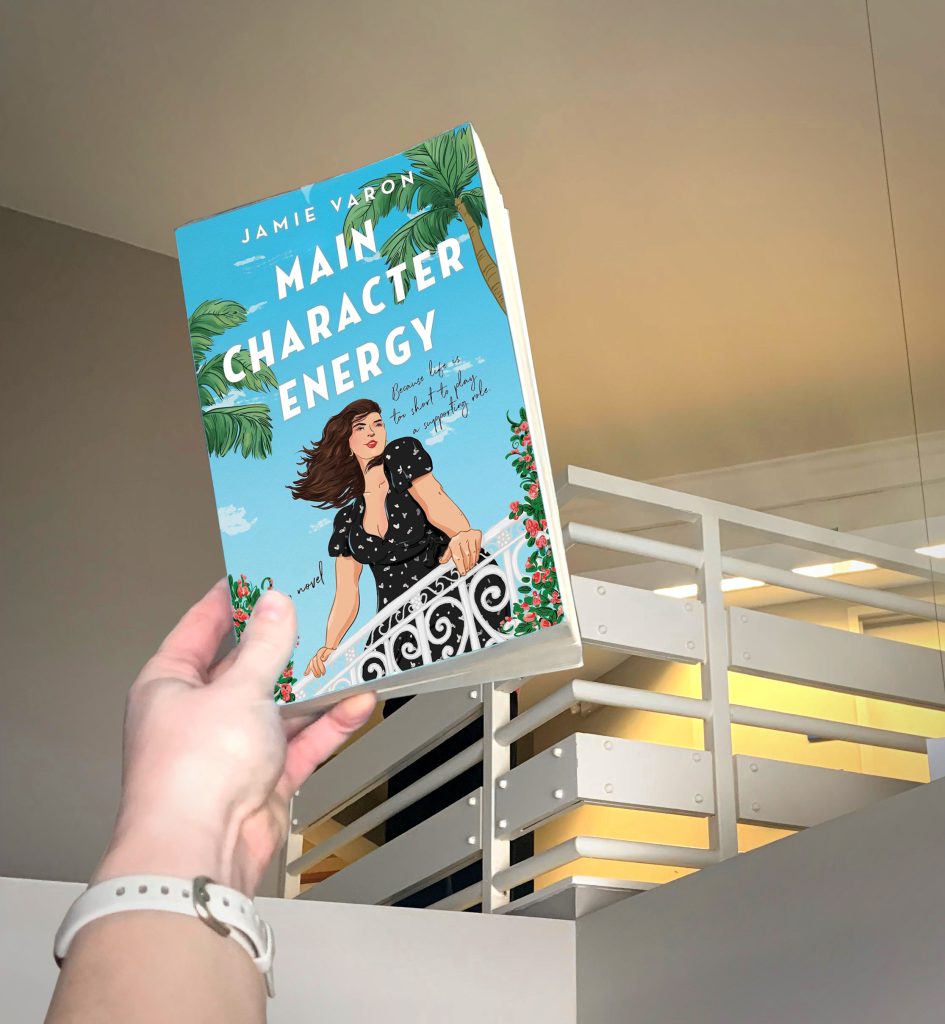
There’s nothing like a good romance in February, especially if it’s all about learning to love yourself. This week’s #BookFace “Main Character Energy: A Novel” by Jamie Varon (Park Row, 2023) is the perfect book for those looking for a feel-good romance. This title is available as an eBook and an Audiobook in Nebraska OverDrive Libraries! You can find it along with 13,000 other titles in the Romance section on OverDrive. Did you know you can search the entire digital collection by subject, whether it’s as broad as Fiction and Nonfiction, or as niche as Self-Improvement or Mythology?
“Poppy is bright and complicated and utterly enchanting in Jamie Varon’s debut.”
—Ashley Poston, New York Times Bestselling Author of The Dead Romantics
Find this title and many more through Nebraska OverDrive! Libraries participating in the Nebraska OverDrive Libraries Group currently have access to a shared and growing collection of digital downloadable audiobooks and eBooks. 194 libraries across the state share the Nebraska OverDrive collection of 26,174 audiobooks, 36,611 ebooks, and 5,210 magazines. As an added bonus it includes 130 podcasts that are always available with simultaneous use (SU), as well as SU ebooks and audiobook titles that publishers have made available for a limited time. If you’re a part of it, let your users know about this great title, and if you’re not a member yet, find more information about participating in Nebraska Overdrive Libraries!
Love this #BookFace & reading? Check out our past #BookFaceFriday photos on the Nebraska Library Commission’s Facebook page!
Posted in Books & Reading
Tagged bookfacefriday, Ebook, Jamie Varon, Main Character Energy, Nebraska OverDrive Libraries, Novel, OverDrive, Reading, romance
Leave a comment
Friday Reads & #BookFaceFriday: Houses with a Story, by Seiji Yoshida
Sometimes art imitates #BookFaceFriday
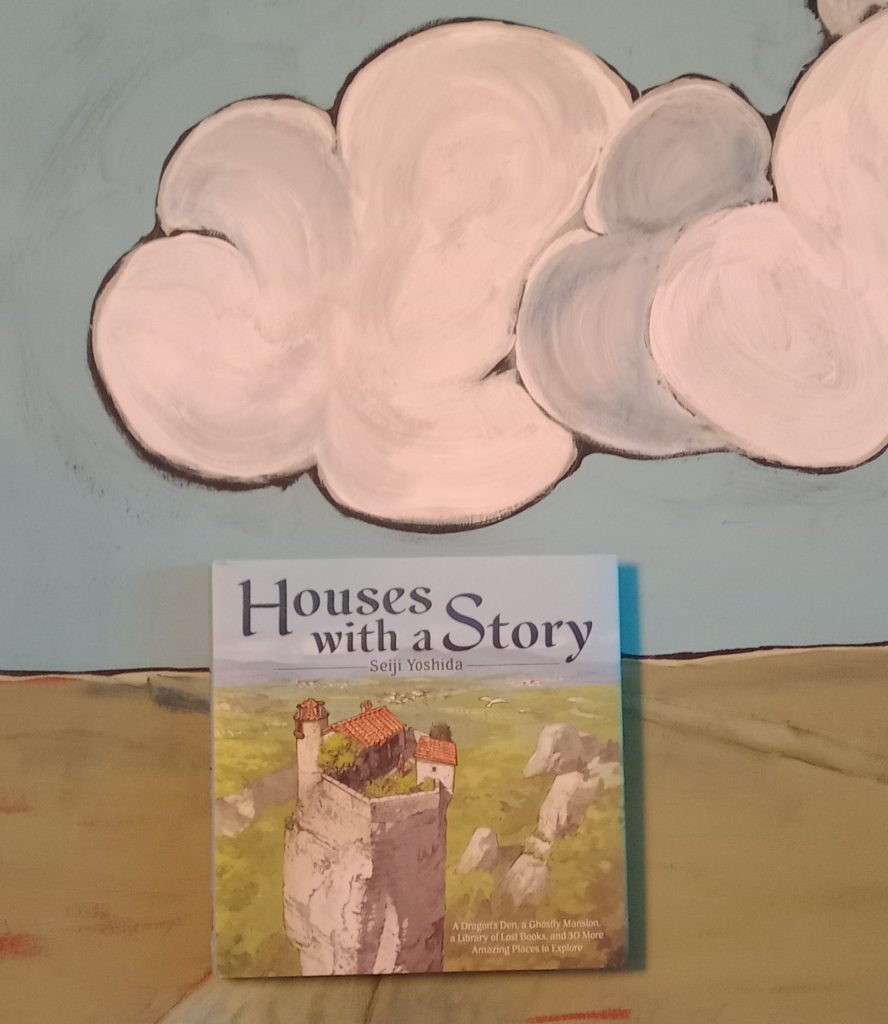
After the holiday frenzy I needed to read something that would serve as a mental palate cleanser–the literary equivalent of a deep, cleansing breath. Houses with a Story, by Seiji Yoshida, fit the bill.
Yoshida, a Tokyo-based artist who works as a professional background illustrator in the game/anime industry, first published Houses with a Story in Japan in 2020. The English translation came out in November 2023. Language isn’t the most important component of this book, however. Instead, detailed illustrations of over 30 imaginative dwellings, along with brief text hinting at a backstory for each, predominate.
Each of Yoshida’s 30+ houses get at least a two-page spread featuring both a street view and a cut-away drawing that lets you see inside the structure’s various rooms. This allows you to view nooks and crannies, furnishings, and basic possessions. Sketched floor plans are also sometimes included.
One of my favorite dwelling/character combos is the Methodical Witch’s House. Her small abode is divided into two rooms by a partial wall, which includes a two-sided hearth designed to heat both. The witch grows herbs and vegetables in an outdoor garden (also depicted), which she then harvests and uses in cooking and medicine. According to a “Concepts and Commentary” section at the back of the book, Yoshida imagines this house existing in mid-nineteenth century Scotland.
As a librarian, I also love Yoshida’s Library of Lost Books. This temple-like compound of unknown origin exists in an imaginary, isolated, Tibet-inspired landscape. According to the accompanying annotation, it supposedly contains “all the books that have been entirely lost to this world.” The lone librarian’s main duty is to comb the shelves for newly lost books that appear daily in order to catalog and organize them—a seemingly unending task.
The publisher of Houses with a Story recommends it for fans of Studio Ghibli, which makes sense given their similar aesthetic. I also think that adults who enjoy looking at architecture, floor plans, and photo spreads of enchanting and unusual living spaces will be enthralled. Finally, if you were a kid who loved poring over Richard Scarry, I Spy, and Where’s Waldo books, this might be a good selection for adult you!
You can find “Houses with a Story: A Dragon’s Den, a Ghostly Mansion, a Library of Lost Books, and 30 More Amazing Places to Explore” by Seiji Yoshida and many more in Nebraska OverDrive Libraries! Libraries participating in the Nebraska OverDrive Libraries Group currently have access to a shared and growing collection of digital downloadable audiobooks and eBooks. 194 libraries across the state share the Nebraska OverDrive collection of 26,174 audiobooks, 36,611 ebooks, and 5,210 magazines. As an added bonus it includes 130 podcasts that are always available with simultaneous use (SU), as well as SU ebooks and audiobook titles that publishers have made available for a limited time. If you’re a part of it, let your users know about this great title, and if you’re not a member yet, find more information about participating in Nebraska Overdrive Libraries!
This week’s BookFace “model” is a painting by the late Lincoln artist Larry Griffing, which hangs in librarian Lisa Kelly’s home. Thank you Lisa for capturing this photo for us!
Love this #BookFace & reading? We suggest checking out all the titles available in our Book Club collection, permanent collection, and Nebraska OverDrive Libraries. Check out our past #BookFaceFriday photos on the Nebraska Library Commission’s Facebook page!
Yoshida, Seiji. Houses with a Story. Abrams, 2023.
Posted in Books & Reading, General
Tagged #BookFace, bookfacefriday, Friday Reads, Houses with a Story, Reading, Seiji Yoshida
Leave a comment
Book Club Spotlight – Survivors of the Holocaust
In observance of Holocaust Remembrance Day, today’s Book Club Spotlight, Survivors of the Holocaust: True Stories of Six Extraordinary Children, is a graphic novel that commemorates the Jewish children who were displaced by World War Two. This book will be read in conjunction with next month’s spotlight, When Stars are Scattered, which follows two Somali brothers as they are growing up in a Kenyan refugee camp. While these children all survived, it’s important to remember those who are still being displaced or, worse, by war and apartheid. Survivors of the Holocaust is adapted from a six-part animated interview series, Children of the Holocaust, which won the VLA Graphic Novel Diversity Award for Youth Honor. It was edited by Kath Shackleton and illustrated by Zane Whittingham.
The graphic novel begins with a foreword by Lilian Black, who was the Chair of the Holocaust Survivors’ Friendship Association. She introduces us to the six storytellers, Heinz, Trude, Ruth, Martin, Suzanne, and Arek, who were all children at the beginning of World War II and were impacted by the Holocaust and its systemic persecution of Jewish people. Split into individual sections, we begin by meeting each child shortly before war breaks out during Hitler’s rise to power. Some are forced to flee with their families, siblings, or all alone. Others are stuck in Germany and manage to survive their time in concentration camps. Their stories are told through evocative and mildly disturbing illustrations that work to bring the sense of terror that Hilter’s reign imposed on their young lives. Sections following the main stories include short paragraphs about each of the children as they grew up outside of the war, a timeline of events, a helpful glossary of terms, and further online resources.
“It is not easy for them to tell their stories. They agreed to because they want people to know what can happen when people are subjected to discrimination and persecution for being seen as “different”. Their dearest wish is that no one should suffer as they did and that people who never again stand by when injustice is taking place.”
Survivors of the holocaust – Foreword: Lilian Black
Appropriate for ages ten and above, Survivors of the Holocaust presents a solid reference point for young readers who are just learning about the Holocaust. As written by The Jewish Book Council: “These accounts represent a good cross-section of experience, since plurality of experience is vital in presenting the Holocaust to young readers. The illustrations make the identities of the victims and perpetrators clear and the maps used as backgrounds provide geographic grounding for border crossings. Renderings of photographs and primary documents add another layer of understanding”. However, there are minor inconsistencies that often occur through retellings. From classrooms to adult reading groups, Survivors of the Holocaust presents a multifaceted approach to our continuing Holocaust education and commitment to victims of displacement.
As with many of our Book Club Kits, discussion questions and an Educator’s Guide are available to help teachers and Book Club Group leaders through discussion resources and additional information.
Other Resources:
- Discussing the Holocaust:
If you’re interested in requesting Survivors of the Holocaust for your book club, you can find the Request Form here. There are 10 copies available. (A librarian must request items)
Shackleton, Kath. Survivors of the Holocaust. Sourcebooks Explore. 2019.


